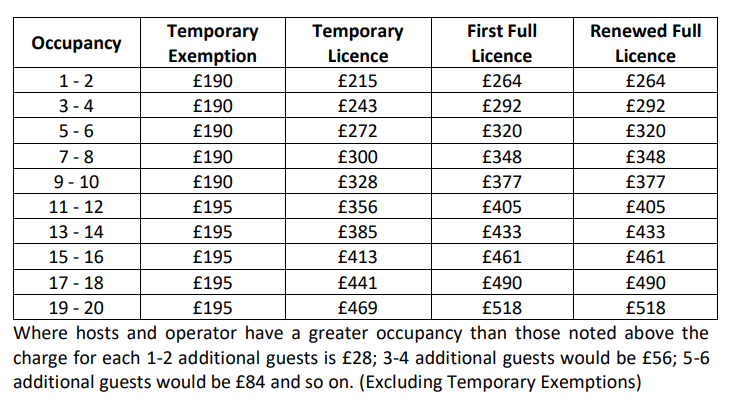
The short-term lets licensing scheme is mandatory for all short-term let accommodation across Scotland. This includes holiday cottages, B&Bs, guest houses, rooms within a home and unconventional accommodation such as pods and yurts.
Fife Airbnbs
New legislation means Fife Council has introduced a Short-term Let Licencing Scheme from 1st October 2022. The long & short of it is that if you use accommodation to offer short-term lets in Fife you’ll need to apply for a licence from Fife council by the 1st of October 2023. All new short term lets require a license before they can operate and by the 1st of January 2025, existing hosts won’t be able to trade without a license.
How does this affect you?
- Existing Hosts and Operators:
Existing hosts that have been trading on or before 30th September 2022 may continue to accept bookings after 1st October 2022. On 1st March 2023, the Scottish Parliament approved a six-month extension for applications. Existing hosts must now apply for a licence before 1st October 2023, and can continue operating while their application is being determined.
- New Hosts and Operators:
From 1st October 2022, new hosts and operators cannot accept bookings until they have obtained a licence. After this date, letting agencies and platforms should not allow a booking to be made by a new host/operator until a licence number can be provided.
There are four types of licence for short-term let accommodation:
- Secondary letting – The letting of property where you do not normally live, for example a second home that is let to guests
- Home letting – Using all or part of your own home for short-term lets, whilst you are absent. An example of this could be whilst you are on holiday
- Home sharing – Using all or part of your own home for short-term lets, whilst you are there
- Home letting and home sharing – Operating short-term lets from your own home while you are living there and for periods when you are absent
Need to apply for a Short-term let license in Fife?
You’ll need to have all the following information to hand:
- Current Gas Safety Certificate (for premises with gas supply)/li>
- Current Electrical Installation Condition Report (EICR)
- Current Portable Appliance Testing Report
- EPC Certificate: (where applicable) – Valid to & Rating
- Buildings Insurance and Public Liability – Valid to
- Legionella Risk Assessment- Date Completed
- Planning permission (if required)
- Owners Details
- Directors Details
Full list of types of accommodation that need a license:
- B&B and guesthouse
- boat (fixed and not used as transport)
- boathouse
- cabin
- castle
- chalet
- cottage
- exclusive use venue where accommodation is provided (that does not have a licence to sell alcohol)
- farmhouse
- holiday caravan or glamping pod that does not already have a caravan site
- licence
- lighthouse
- lodge
- self-catering or holiday let
- serviced apartment, either on its own, or up to 4 in a building that’s a flat or residential unit where:
- hosts provide services to guests (such as housekeeping, phone desk, reception, or laundry)
- each flat or unit contains its own washing, cooking and dining facilities separate from each of the other flats or units
- there’s a management system to prevent anti-social behaviour and imposes limits to the maximum occupancy of the flats or units
- shared home or rooms within a home
- shepherd hut
- tent, tipi or wigwam
- treehouse
- yurticon
If you’re still in doubt, the Scottish government has set up this website with a few questions to answer so you can check if you need to apply.
Short Term Letting License Costs
Here’s the cost of a license as of April 2023:

If you need more detail, this is the best page to start (the “Fife Council publications” section at the bottom of the page has links to some useful docs too – the factsheet and FAQs is a useful guide).
